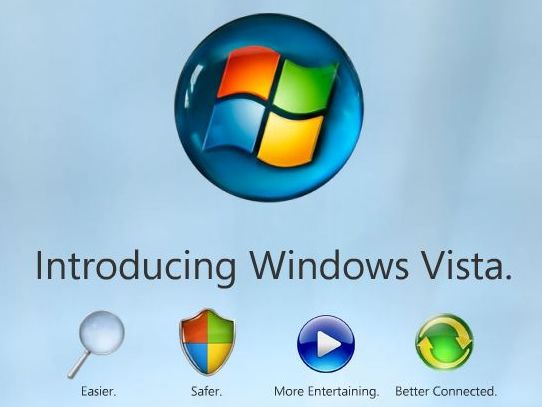Inside Windows Vista Service Pack 1
What will and what won't be in Microsoft's key update

While rumours of an imminent beta version of Windows Vista Service Pack 1 have been quashed, just what should we be expecting Microsoft's first package of fixes to do?
Unsurprisingly, Redmond isn't commenting on the content specifics of SP1. But the biggest issue that's facing consumers running Vista machines at the moment is system performance. So let's take a look at what we can expect inside the Service Pack, due later this year.
Performance improvements
Many of the initial stability issues in Windows Vista have been cured by better drivers since its release. But Windows XP still feels like a more agile working environment. Partly, Vista's problems are down to the constant indexing it performs for its search functions - although Desktop Search for Windows XP doesn't seem to suffer in the same way.
But when it comes to performance tweaks, many consumer-level users aren't going to be bowled over by SP1. The rumoured highlights of the pack include support for EFI booting on a 64-bit machine. This will be gibberish to most and practically meaningless too, unless you're running the 64-bit version of Vista.
Faster gaming
Gaming, too, has been disastrous on Vista. Microsoft has been pushing the Games for Windows idea hard. But not even the first DirectX 10 patches have been able to redeem it as a gaming platform.
Not only has Vista proven itself worse than XP for games performance, but DX10 games are currently running slower than DX9 versions of the same title in Vista. And DX10 was supposed to be the great performance panacea.
When it comes to gaming performance, though, we're not quite so hopeful. Certainly we're not expecting a major revision to DirectX 10 yet - and from what we gather DirectX 10.1 will require new hardware anyway. AMD reckons there's still a lot more leverage to be had from current hardware with better drivers. But until we start to see more DX10 games released, there's not a lot of pressure on either AMD or Nvidia to deliver.
Sign up for breaking news, reviews, opinion, top tech deals, and more.
Better third-party access
The good news is that the recent Google lawsuit means that SP1 will open up options for third party desktop search tools to run efficiently under Vista.
While we wouldn't necessarily recommend Google Desktop as our tool of choice, switching from Windows Desktop Search on an XP laptop to the wonderful Copernic 2 shaved almost a minute off boot times. And it made a noticeable impact on system performance - particularly with Microsoft Office 2007.
Fingers crossed that a third party search tool can bring the same kinds of benefits to Vista - as much for Microsoft's sake as anyone else's.
Better file transfers, improved ReadyBoost
The tweaks to file transfer - including the new DMA mode for SD cards - that have been reported mostly seem to point to finally making ReadyBoost mean something in terms of system performance. To date, plugging a piece of Flash memory into a Vista machine hasn't really seen much of a boost. Likewise the 'improved shutdown' mentioned in the same article could be talking about the same thing - Vista's ability to write key files to Flash memory for faster boot times.
What you won't get
Unfortunately, the things most people want - which is mainly their old software library to work properly, and games to play faster - aren't likely to be in SP1. Nor are we likely to see a new audio stack which enables hardware accelerated sound cards to work in DirectX again. We can say fairly confidently that there will definitely be no backtracking when it comes to the DRM side of things which has caused so much furore.
People's expectations of what a Service Pack should contain were no doubt raised by the enormity of Windows XP SP2 - which introduced some massive changes to XP including better networking and a much-improved Windows Firewall.
For the most part, SP1 for Vista is likely to be a bit underwhelming, unless you're administering a corporate network. There's not much that's sexy about a list of bug fixes and security holes plugged. It's simply essential work which will make Vista a more enticing prospect, no doubt. But it's unlikely to convince those who are steadfast in their refusal to upgrade.
The TechRadar hive mind. The Megazord. The Voltron. When our powers combine, we become 'TECHRADAR STAFF'. You'll usually see this author name when the entire team has collaborated on a project or an article, whether that's a run-down ranking of our favorite Marvel films, or a round-up of all the coolest things we've collectively seen at annual tech shows like CES and MWC. We are one.